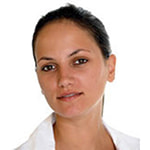
Hopes for media freedoms in Macedonia
Is journalism now unbound after Gruevski’s fall?
|10.11.2017
|
“The media still faces many of the same challenges that have influenced the media landscape for several years now and the perception is still that the media outlets are politically affiliated or instruments of influential persons.”
European Commission report“Media self-regulation might lead to improving the professional work of media in Macedonia and to stopping the practice of state and political control over media.”
Marina Tuneva, Council of Media Ethics of Macedonia
Ivana Kostovska
Ivana Kostovska has wide-ranging experience over more than 10 years of working for many Macedonian and foreign news outlets, both as journalist and editor, including the BBC. She studied a Media Management MA at the University of Westminster, UK, and has research interests in the digital business models of Balkan media companies.
This story was originally written in English.